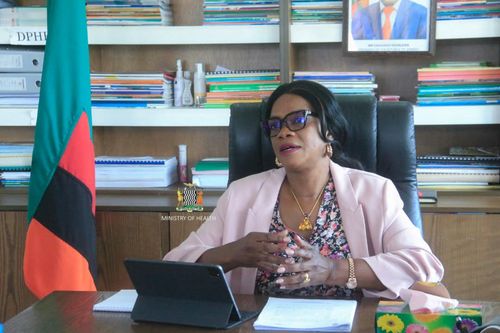Government says it has put together a team of experts from three ministries – Health, Labour and Mines to investigate the manganese disease, following a MakanDay investigation, which revealed that 18 manganese mineworkers have been plagued by a permanent brain damaging health condition.
The manganese disease, which has symptoms similar to Parkinson’s disease has left some current and former workers of an Indian-owned Southern Africa Ferro Alloys Limited (SAFAL), in Serenje, central Zambia losing balance and unable to speak.
Ministry of Health Permanent Secretary Professor Lackson Kasonka said “a comprehensive report of the findings will be shared in due course” once a team of experts from three ministries – Health, Labour and Mines conclude their investigation.
“We have instituted a team of experts from our Ministry working with other line ministries, that is Ministry of Mines and Minerals Development, Labour and Social Security and also the Occupational Health and Safety Institution (OHSI) to urgently investigate this matter,” said Kasonka in a written response to a MakanDay query.
“The Ministry would like to thank your institution for its proactiveness and for bringing this matter to our attention,” he added.
But on Thursday, 9th March 2023, through a statement issued by the Minister of Health Sylvia Masebo in the national assembly, she said government knew about the condition of the SAFAL workers in September last year.
“In September last year, government through my Ministry responded to an alert concerning employees of SAFAL who presented loss of balance, impaired speech dropping of saliva from the mouth among others,” said Ministry of Labour and Social Security Minister Brenda Tambatamba, who read the statement on Masebo’s behalf.
Masebo said, according to the health records, 28 workers have shown the above symptoms so far and they are no mortalities resulting from the disease.
“The Occupational Health Safety Institute under the Ministry of Labour and Social Securities was notified and blood samples were taken from 281 employees of SAFAL to determine the cause of what contributed to the problem.
“The results reveal that 271 which is 96.4 percent have blood levels of manganese above the normal level,” Tambatamba said.
She said the “strange disease” that was observed by the workers is manganism or manganese poisoning adding that the disease was caused by repeated occupational exposure to manganese and that the patients are receiving treatment from the University Teaching Hospital (UTH).
Masebo also explained that a team has been constituted consisting of the staff from the Ministry of Health, Ministry of Labour and Social Security, Ministry of Mines and Minerals Development, Zambia Environmental Management Agency, Occupational Health and Safety Institute (OHSI) and the Mine Safety Department to urgently investigative the matter.
The minister further said the outcome of the investigation would determine an appropriate action to be taken on SAFAL.
Despite the workers not being members of the Mine Workers Union of Zambia (MUZ), the union has taken interest in the matter. Union president Joseph Chewe, told MakanDay that his union had met with OHSI and urged them to protect the workers.
“If its management who are willfully exposing the miners to harmful occupational diseases because they do not provide Personal Protective Equipment (PPE), the OHSI have the right to stop their operations,” said Chewe.
Health experts say manganese poisoning is a toxic condition resulting from chronic exposure to manganese and it is manly manifested as a neurological disorder with symptoms that include traumas, difficult in walking and facial mark spasms.

Discover more from MAKANDAY
Subscribe to get the latest posts sent to your email.



